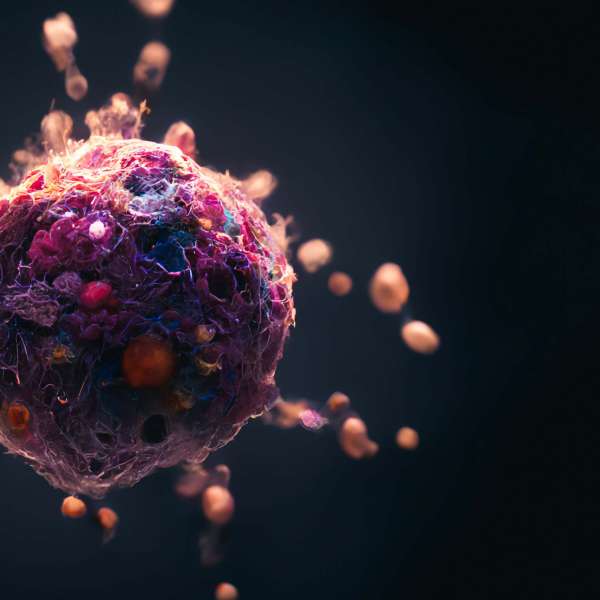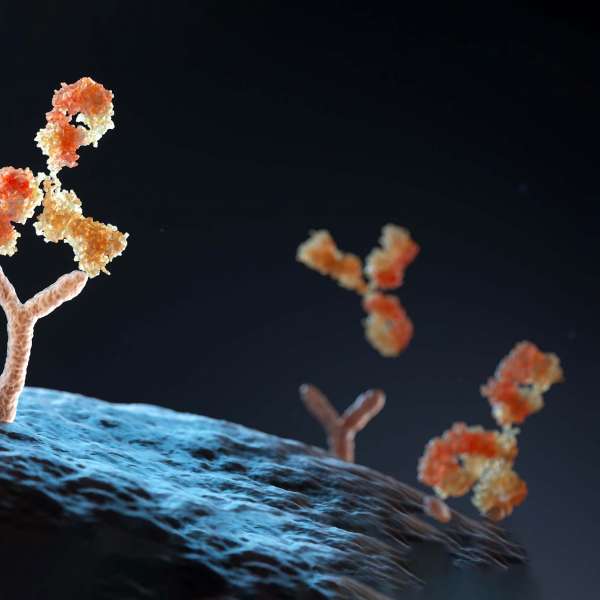Applications
AFFIAVIDIN is commonly used as a tag in protein purification methods. A biotinylated tag is added to the protein of interest and then captured by the high-affinity binding of AFFIAVIDIN to biotin. The protein can then be easily isolated and purified. AFFIAVIDIN can detect and localize specific molecules in cells and tissues. Biotinylated antibodies or nucleic acid probes can label particular molecules. AFFIAVIDIN binds to the biotinylated molecule and creates a signal for detection. AFFIAVIDIN is used in various diagnostic assays to detect the presence of biotinylated targets. AFFIAVIDIN can be utilized in gene delivery by binding to biotinylated DNA or RNA molecules and facilitating cell uptake for gene therapy or genetic engineering applications. In enzyme-linked immunosorbent assays (ELISAs), AFFIAVIDIN coated on a microplate captures biotinylated detection antibodies. A colorimetric or fluorescent signal detects the presence of the target molecule. AFFIAVIDIN can also bind to biotinylated drugs or drug carriers, allowing targeted delivery to cells or tissues with high biotin levels.AFFIAVIDIN has a wide range of applications in various fields, including biotechnology, diagnostics, and research:
Use-cases
- Protein purification
- Immunohistochemistry and in situ hybridization
- Diagnostic assays
- Gene delivery
- Drug delivery
Unit
AFFIAVIDIN available in milliliters ml
Benefits of Bioseutica®’s AFFIAVIDIN
Bioseutica® produces ultra-high purity AFFIAVIDIN, making it particularly attractive for maximizing the efficacy of probes and derivatives, which rely on minimizing background. We provide complete services and technical and application support to help our customers meet their unique product requirements. Our Quality Control Systems ensure reliable performance and quality. Customers are encouraged to request and review our analytical results before shipment for pre-approval as required.
Contact us today to learn more about our first choice, AFFIAVIDIN.
Non-Warranty: The information contained herein is provided in good faith and is true and correct to our knowledge. However, no warranty or guarantee is implied or inferred, and the information may be subject to change without further notice. Bioseutica®’s products are sold with the understanding that the purchaser will conduct tests to determine the suitability of these products for their particular use.
References
- Diamandis EP & Christopoulos TK.: The biotin(strept)avidin system: principles and applications in biotechnology, Clinical Chemistry 1991 | Publisher Site
- Jain A & Cheng K.: The principles and applications of avidin-based nanoparticles in drug delivery and diagnosis, J Controlled Release 2016 | Publisher Site
- Pardridge WM.: Blood-brain barrier drug delivery of IgG fusion proteins with a transferrin receptor monoclonal antibody, Expert Opinion on Drug Delivery 2015 | Publisher Site
- Lesch H et al.: Avidin-biotin technology in targeted therapy. Expert Opin. Drug Deliv. 2010 | Publisher Site
- Stella M et al.: Avidin-Biotin System in Radioimmunoguided Surgery for Colorectal Cancer. Dis. Colon Rectum 1994 | Publisher Site
- Sakahara H & Safa T.: Avidin–biotin system for delivery of diagnostic agents, Advanced Drug Delivery Reviews, 1999. | Publisher Site
- Eakin R. et al.: Egg-White Injury In Chicks And Its Relationship To A Deficiency Of Vitamin H (Biotin), Science 1940 | Publisher Site
- Poissonnier et al.: Observations of the ‘‘Egg White Injury’’ in Ants. PLOS one. 2014 | Publisher Site
- Kunnas et al.: Induction of chicken avidin and related mRNAs after bacterial Infection, Biochimica et Biophysica Acta. 1993 | Publisher Site
- Jain A & Cheng K.: The principles and applications of avidin-based nanoparticles in drug delivery and diagnosis, J Controlled Release 2016 | Publisher Site
- Pignatto et al.: Optimized Avidin Nucleic Acid Nanoassemblies by a Tailored PEGylation Strategy and Their Application as Molecular Amplifiers in Detection, Bioconjugate Chem, 2010 | Publisher Site



